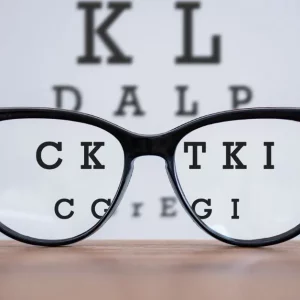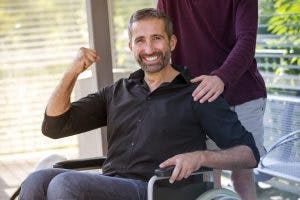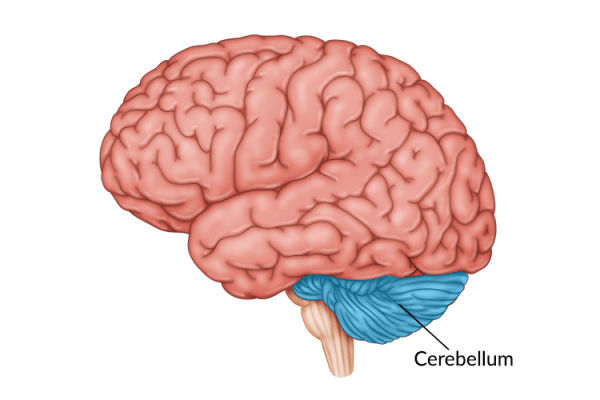Is there a link between brain injury and dementia? This is a common question among traumatic brain injury (TBI) survivors and their family members. While there appears to be a connection, there are ways to minimize the likelihood of developing dementia after brain injury.
This article examines the latest research focused on the relationship between brain injury and dementia. Statistics regarding this relationship, as well as treatments and tips for those at risk of dementia, are also included.
Use the following links to jump directly to a certain section of this article:
- Research on Brain Injury and Dementia
- Diagnosing Dementia After TBI
- How TBI Survivors Can Reduce the Risk of Dementia
- How to Help a Loved One with Brain Injury and Dementia
Research on Brain Injury and Dementia
Current research seems to indicate that brain injury and dementia are somehow linked, though the exact reason for this connection remains unclear. While researchers may be uncertain as to why brain injury can lead to dementia, they have discovered some points regarding this association.
The following are the main conclusions of several studies focused on dementia after TBI:
- Those with a traumatic brain injury are approximately 1.8 times more likely to develop dementia. Many studies looking at the relationship between brain injury and dementia have resulted in a similar probability, although this is a generalized estimate. The actual risk of someone developing dementia after a TBI varies based on the number and severity of brain injuries sustained, as well as the individual’s personal risk factors.
- Severe traumatic brain injuries are associated with dementia, while mild brain injuries are not. A longitudinal population-based study in Finland found that the risk of developing dementia increased among those with a major TBI. However, there was no greater risk of dementia among those who sustained a single mild TBI (concussion) than those without a brain injury. This aligns with the findings of many related studies.
- While sustaining one mild traumatic brain injury does not increase the risk of dementia, repeated mild TBIs can lead to dementia. Researchers discovered this fact in the 1920s when professional boxers started showing signs of mental decline after a few years in the ring. At the time, it was called dementia pugilistica or “punch drunk” syndrome. Today, this syndrome is referred to as chronic traumatic encephalopathy (CTE).
- The connection between brain injury and dementia lessens when controlled for alcohol consumption and physical activity. Brain injury survivors are likely to consume excessive amounts of alcohol and live sedentary lifestyles, both of which are known risk factors for dementia. When adjusting for these factors, the association between TBI and dementia diminishes.
While the exact reason why a brain injury may lead to dementia has yet to be found, researchers are currently studying this topic. Some studies suggest that changes in the blood brain barrier or inflammatory processes may be responsible.
Although the facts above may seem alarming, please remember that many individuals who experience a brain injury, even a severe one, will not develop dementia. Brain injury only increases the risk of dementia; it does not guarantee it.
Diagnosing Dementia After TBI
Many of the symptoms of dementia, such as memory and concentration problems, are also common traumatic brain injury symptoms. Therefore, signs of dementia may present, even among TBI survivors without the disease.
Talking with one’s doctor or a specialist can help survivors receive an accurate diagnosis. Specialists can perform a variety of tests to determine whether an individual has dementia, such as:
- Cognitive and neuropsychological tests. These tests measure memory, problem-solving, language skills, and other abilities related to cognitive functioning.
- Lab tests. Doctors might also check the levels of hormones, chemicals, and vitamins in the blood to rule out any other causes of cognitive symptoms.
- Psychiatric evaluations. These assessments will help doctors determine whether depression or other psychiatric problems may be contributing to one’s symptoms.
Taken together, these tests can enable doctors to identify dementia after a TBI. With an accurate diagnosis, survivors can pursue effective treatments.
How to Reduce The Risk of Dementia After Brain Injury
While experiencing a traumatic brain injury can increase the risk of developing dementia, making healthy lifestyle choices can mitigate this. In fact, reversible lifestyle risk factors account for approximately 40% of dementia cases worldwide. Addressing these modifiable risk factors can delay or even prevent the onset of dementia.
Many of the lifestyle choices that help lower the chances of developing dementia can also keep a brain injury from getting worse over time. Here are four of the main ways to reduce dementia risk:
1. Stay Physically Active
Physical exercise isn’t just good for the body; it’s also great for the brain. Low-impact exercise, such as aerobic activity, increases blood flow to the brain. This lets the brain get more nutrients, which promotes better brain function. It also improves mood and sleep.
Additionally, and perhaps most importantly, exercise can preserve or boost the size of the hippocampus, the part of the brain responsible for memory. Even among previously sedentary individuals, starting an aerobic exercise program can increase hippocampus size in younger individuals and prevent age-related hippocampal shrinking among those who are older. This has significant implications for TBI survivors, as it could prevent memory decline and help prevent dementia.
2. Challenge The Brain
When the brain is stimulated, it forms neural connections. More brain stimulation results in more neural connections, which promotes improved cognitive functions.
Therefore, to minimize cognitive decline, it is essential to keep the brain active. Some ways to challenge the brain include:
- Learning a new game like chess or Sudoku
- Trying music therapy or learning a musical instrument
- Reading at least one novel a month
- Completing a crossword puzzle
When the brain stays active, it is less likely to decay. Finding a fun and engaging way to stimulate the brain can help improve cognitive symptoms after brain injury and reduce the risk of developing dementia.
3. Stay Socially Active
Prolonged social isolation significantly increases the risk of dementia, even among those who have never had a brain injury. For TBI survivors, this risk is even higher.
While overcoming prolonged social isolation can be very challenging, it is crucial to participate in social activities. Research shows that the most socially active people have the best cognitive function and the lowest risk of dementia.
Here are some activity suggestions to try that could boost social interactions:
- Volunteer at a favorite charity
- Try some recreational therapy activities
- Join a painting class, or try art therapy
- Attend a place of worship, or join a religious group
- Go to a museum with a family member or friend
- Join an adaptive sports league
- Find a group related to a favorite hobby
Trying social activities can be intimidating, but with practice, these activities will become more comfortable. For further motivation to become socially active, it may help to keep in mind the benefit of reduced cognitive decline.
4. Consume a Brain-Healthy Diet
Foods that promote brain function can also reduce the risk of dementia, according to several studies. A good brain injury diet is rich in omega-3s and antioxidants, nutrients that can boost neuroplasticity and reduce inflammation. In particular, scientists recommend following the popular MIND diet, which includes foods such as:
- Dark, leafy greens such as kale and spinach; at least 6 servings per week
- Fatty fish like salmon and trout; one meal per week
- Unsalted nuts; at least 5 servings per week
- Berries, especially blueberries; twice per week
- Whole grains; 3 times per week
- Beans; 3 times per week
- Olive oil
In addition, it is important to avoid or at least limit red meat, dairy, sweets, and fried foods, as these can increase inflammation in the brain. The MIND diet supports healthy cognitive function and allows the brain to heal faster from its injuries. Therefore, to reduce the risk of dementia after TBI, try to follow it as closely possible.
How to Help a Loved One with Dementia and Brain Injury
When a loved one is diagnosed with dementia after a TBI, it can be very beneficial for family members to learn strategies to interact effectively with them. Although the initial stages of dementia are easier to navigate, the following tips may help to improve interactions as cognitive functions continue to decline:
- Ask simple questions. Ask only one question at a time, and preferably ones with yes or no answers. Limiting open-ended questions, and rather using questions with set choices can also be helpful. For example, instead of asking, “What would you like to eat?”, try asking, “Would you like a sandwich or salad for lunch?”.
- Speak slowly and clearly. Use simple words and sentences, and speak in a reassuring tone. If they don’t understand the first time, repeat the message patiently. Also, try to use the names of people and places instead of pronouns.
- Break activities down into steps. This can help make tasks more manageable. If a loved one struggles to remember how to do an activity, gently remind them of each step they need to take or write down the steps in an easy-to-find place, such as a whiteboard.
- Distract and redirect. If the person becomes upset or agitated, try changing the subject or moving them to a new environment. For example, consider asking if they could help with something or suggest going for a walk.
These are just a few simple ways to make interactions with individuals with dementia a little easier. For more recommendations, talk with a family doctor or specialist.
Understanding Brain Injury and Dementia
While there appears to be a link between brain injury and dementia, there is no guarantee that having a brain injury will lead to dementia. In fact, the likelihood of developing dementia is still relatively low, even for those who have suffered a severe TBI in the past.
To reduce the risk of dementia following brain injury, it is crucial to stay physically and mentally active, eat healthily, and socialize with others. In addition to lowering the likelihood of dementia, this can keep the body and mind in shape and improve quality of life.










